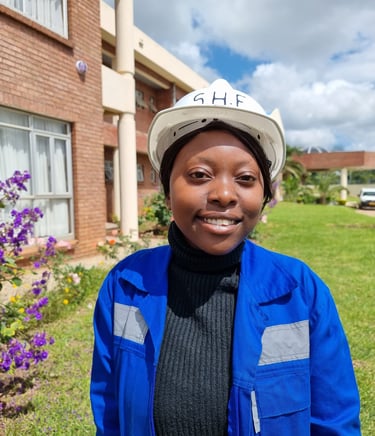Rising Voices: The Role of Young People in Climate Advocacy
How Young People Are Shaping the Climate Change Conversation
Tariro Letty Maderera
4/13/20243 min read


When considering the students at my university, I often wonder what their thoughts are on climate change. In this era of connectivity and social media, we are the most interconnected generation to ever exist. Information about anything and anyone is at our fingertips. With all this information available, young people have access to a wealth of knowledge about climate change. However, the question remains: What do they truly think about it? Some university degree programs incorporate elements of climate change and the environment into their courses, and environmental clubs exist on many campuses. Climate change is gaining more traction and attention, and I believe that young people, being more connected, are increasingly engaged in climate change discourse.
Young people are intimately connected to climate change in various ways. On one hand, their experiences with climate change are often negative and pessimistic. Young people will spend much of their lives on an Earth whose conditions are increasingly altered by climate change. This statement holds true, as youth experience the adverse effects of climate change. Stronger and more prolonged tropical cyclones have negative consequences, disrupting schools and causing unprecedented loss and damage. A case study worth mentioning is Cyclone Idai in 2019, which affected young people in the Eastern Highlands of Zimbabwe, resulting in disrupted education, destroyed infrastructure, and loss of lives. Munsaka (2021) states that Cyclone Idai, which struck Zimbabwe, also caused flooding and left a trail of destruction in communities, leading to socioeconomic challenges for the affected population. Additionally, young people face heightened water insecurity, particularly in arid regions, which forces them to travel longer distances in search of clean and safe water. Moreover, higher-than-normal temperatures contribute to crop failures, posing a significant threat to young people whose families depend on agriculture for financial stability. Han and Ahn (2020) support this notion, highlighting that in developing regions like Africa, young people, who constitute the largest demographic group and the largest labor force in the agricultural sector, face increasing existential threats due to climate change altering environmental conditions such as water availability.
However, despite these negative effects, there has been a surge among young people, driven by a desire to hold world leaders, governments, businesses, and communities accountable for their role in climate change and exacerbating its negative impacts on all communities and species. Notably, individuals like Greta Thunberg and Vanessa Nakate have been actively involved in the climate change sphere. Obrien et al. (2018) state that the policies and decisions made today will have a lasting impact on climate and sustainability outcomes for this century and beyond, and young people have a significant stake in shaping this future. Therefore, young people play a crucial role in climate change activism, and their voices must be included in the conversation. In recent years, following the 2015 Paris Conference, young people are starting to be heard at relevant high-level climate events. While this is a positive step forward, more can be done to include young people in various decision-making processes.
The driving force for young people should be the Sustainable Development Goals (SDGs). Sustainable development, as defined by Emas (2015), involves meeting the needs of the present without compromising the ability of future generations to meet their own needs. Young people are working towards ensuring that the needs of future generations are met. They are taking action now to ensure that their efforts bear fruit for those who will come after them. Hence, climate change and young people are interconnected in the sense that young people advocate for the protection of the planet. Through the use of social media, climate strikes, and environmental advocacy, young people are working towards securing the future of our world. They are the future, and they require the support of all communities to achieve this goal.
Tariro is a final year student studying Bachelor of Science Honours Degree in Geography and Environmental Studies
